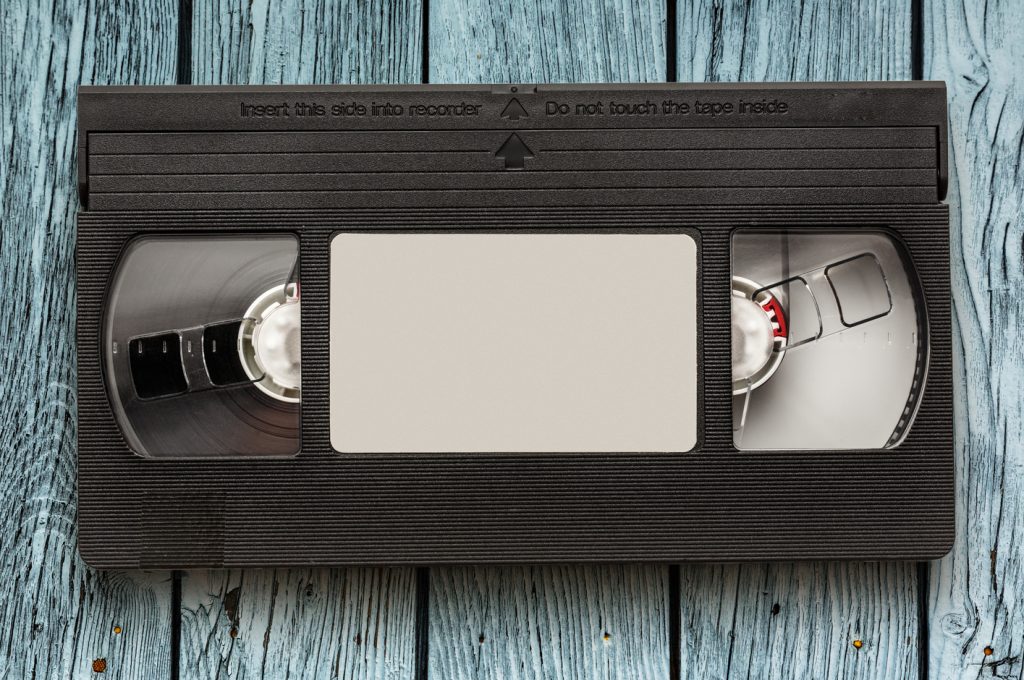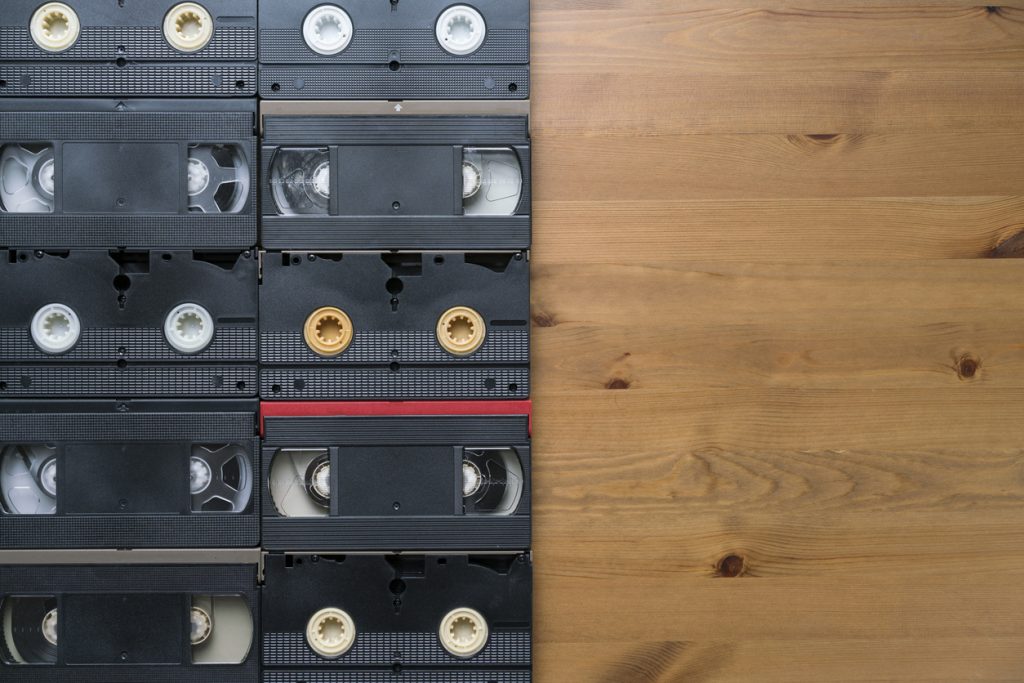While we’re moving away from needing VHS tapes, it’s interesting to look back and see the impact they had on society and how they changed the world of film and TV — this is precisely what we’ll be discussing in today’s blog.
Technology adapts and improves rapidly — far quicker than most of us can keep up with. Staying on top of the latest changes can be expensive, and you may find yourself with an abundance of old tech lying around your home. If that’s the case, you quite possibly have a VHS player and a collection of old tapes in boxes in the attic, which we can help you shift. We’ve progressed past the need for VHS tapes, and most of us are using DVDs or digital devices to store our home movies, TV recordings, and music. If you’re looking to turn old VHS tapes into DVD format, Video2DVD can help you out.
The VHS Tape’s Impact on Society
The VHS tape was a breakthrough in technology when debuted by JVC in Japan in 1976. People were astounded by the ability to record and store footage so easily at home. It required almost no technical skill, which is why the VHS tape was so attractive to the public in the late 1970s. By the mid-1980s, VHS tapes were found in most homes and used to store home movies and record television. Television and movie production companies also used the technology as a brand-new revenue stream – giving film fans the option to purchase movies they saw in the cinema to watch at home.
New Revenue Streams for Filmmakers
With this new technology readily available, viewers could purchase movies and TV shows still showing in the cinema for the first time. This was a considerable leap in advancements for Hollywood and allowed for filmmakers to drastically increase their profits. Home entertainment was the latest trend, and people worldwide indulged in movie nights with their families and experienced home-cinema as nobody had ever seen before. Because of this, viewing ratings of live broadcasts decreased, as instead of having to wait for a movie to premiere on television, they could access it whenever they wanted on their VHS. It also gave viewers the freedom to pause, play, rewind, and fast-forward movies, so you didn’t miss a second.
Accessibility for Small Filmmakers
Having access to filming equipment meant that not only did people now have the ability to capture personal memories on film, but filmmakers had the chance to practice their skills and create content with ease in the comfort of their own homes.
Even now, 45 years on from the invention of the VHS tape, filmmakers are using this technology to create movies. The ‘found footage’ sub-genre defined horror. Found footage is the idea that the footage shown on screen was discovered, hence its name. Movies such as The Blair Witch Project (1999) and Paranormal Activity (2007) paved the way for small filmmakers today who can create cinema-quality films in their own homes (or in the woods) using a VHS.
The VHS Tape’s Impact on Television
VHS tapes had a serious impact on television, as they allowed people to record live programmes straight from their TV onto a tape. If someone in your household was out and they were going to miss their favourite TV show, you could hit record and get a physical copy of the programme ready and waiting to watch over and over again — this was a massive leap in technology and, at the time, made us feel like we were living in the future.
As discussed, the VHS allowed us to pause, play, rewind and fast-forward TV shows that we had pre-recorded. Many of us take this for granted now as those features are standard on all new televisions, but the VHS significantly impacted how we watch TV.
More TV Shows, More Movies, More Choice Globally
VHS tapes opened up the world of TV and film. They gave us access to television programmes and movies that we were previously unaware of. This freedom of choice was something that the world had not yet experienced, and little did we know, we would have access to anything and everything we wanted to watch from all over the world at our fingertips two decades later.
This also meant that we could share our family footage for the first time. We could send physical copies of our memories to relatives and friends around the globe, and they too could share the special moments in our lives.
Turn Old VHS Tapes to DVD
Unfortunately, as big of an impact as the VHS tape had, technology advanced quickly and new and innovative ways of watching movies, television shows and our home movies became more accessible and reliable. If you still have an abundance of home movies stores on VHS tapes, why not transfer them over to DVD so you can future proof your memories? Here at Video2DVD, we specialise in VHS to DVD transfer and would love to help you turn your family’s special moments into something that anyone can access. Please get in touch to find out what we can do for you and save your memories before VHS tapes and players become obsolete.



